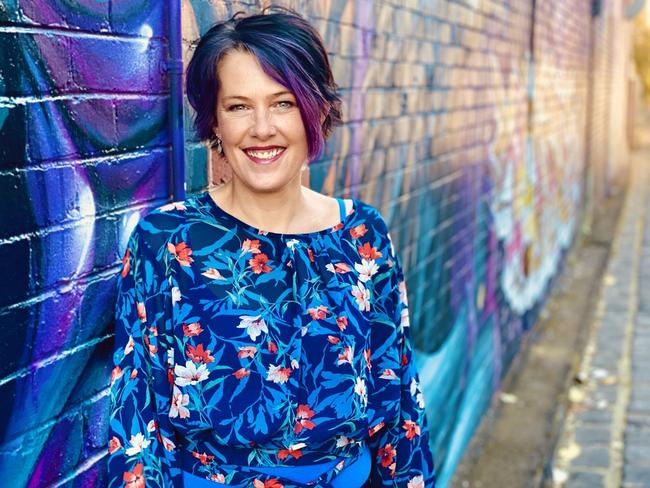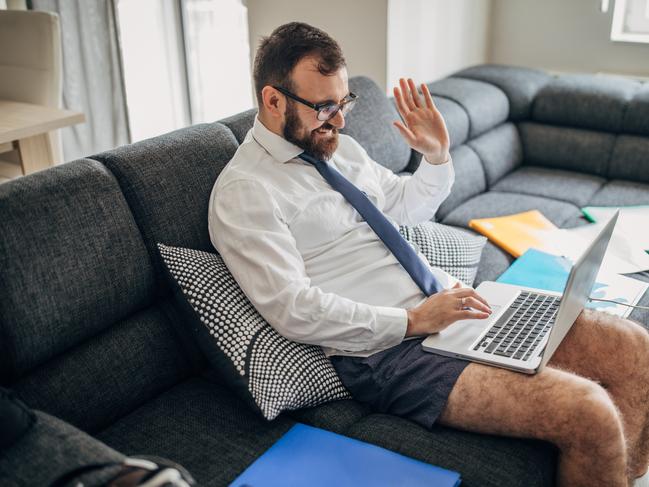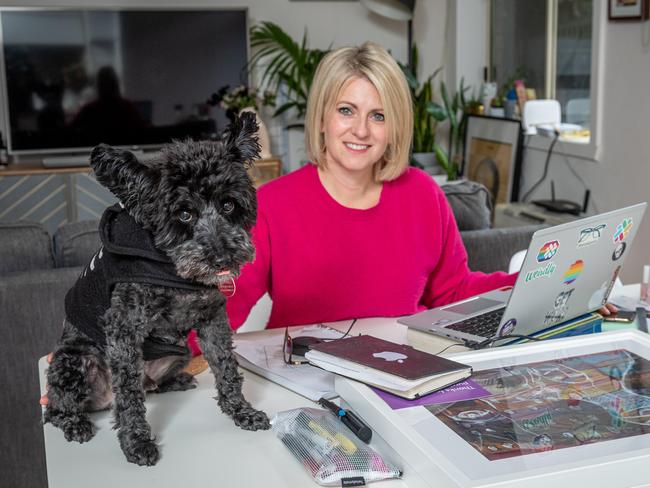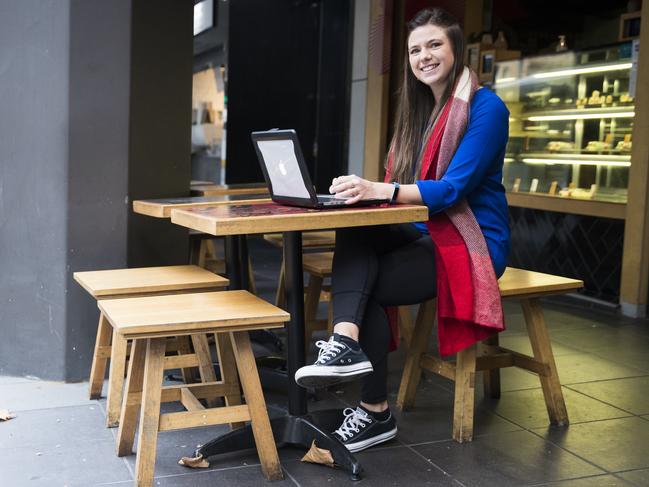Exclusive survey reveals half of Aussies working from home do not want to return to the office
Almost half of Australians working from home throughout the coronavirus pandemic do not want to return to the workplace, a new survey has revealed. Here is how it won Australians over.
National
Don't miss out on the headlines from National. Followed categories will be added to My News.
Almost half of Australians who have been working from home do not want to return to the workplace – but it’s their annoying colleagues and daily commute putting them off more than any potentially-deadly virus.
Exclusive figures from Dynata revealed 43 per cent of 1025 surveyed workers would rather continue from home, with 72 per cent saying they did not want to commute again and 53 per cent enjoying their space from managers and colleagues too much.
Corporate Dojo founder and people leadership expert Karen Gately said it was not just introverts finding benefit in working away from other people.
“It’s also the extroverts with less temptation to be distracted,” she said.
Ms Gately said workers could avoid micromanaging bosses and energy-draining colleagues, too.

“Some people are enjoying being connected via video conferencing but at the same time not having to be surrounded by certain colleagues or conflicts on a daily basis,” she said.
“Politics and office gossip are a lot harder from afar.”
Meanwhile, research from software company Zoho found cutting out the daily commute saved workers not only time but money.
Chief strategy officer Vijay Sundaram said the average Australian spent about $9.50 commuting to and from work every day.
“Over the course of a year, that equates to around $2000 which is a significant amount of money to save as a global financial crisis looms,” he said.
MORE NEWS
The secret babies of Hollywood A-listers
Pete Evans’ most bizarre beliefs over the years
Three killed in park stabbing rampage
“Long, often costly, commutes are a common gripe for many, but working from home allows people to spend their time more productively; whether that be working or spending time with family.”
Still, the Dynata figures found health and safety concerns remained a major factor for 51 per cent of Australians who wished to continue working from home even as offices reopened.
SafetyCulture chief operating officer Alistair Venn said most people were not worried about catching the coronavirus at work but rather on buses or trains on their way there and back.
A commissioned study of 1076 Australians at the start of June found 52 per cent of workers who took public transport felt unsafe doing so.
Mr Venn, whose company created the iAuditor app to help people return safely to work, encouraged employers to reconsider whether workers needed to be in the office every single day.

“We have already informed all of our team that nobody is required to come back into the office until the end of October,” he said.
“Then moving forward all employees will be able to work from home two days a week.”
Studies suggested employers were increasingly open to the idea of staff working from home, including a survey of 1000 Australians commissioned by digital event specialist Redback Connect.
A fifth (22 per cent) of workers said their manager had already offered the option of working from home, while 56 per cent planned to ask for such an arrangement.
A NEW NORMAL
St Kilda East’s Sarah Purches considers herself an extrovert but even she hopes to continue working from home for the foreseeable future.
The RMIT Online talent lead has been operating from her dining room table alongside her four-legged “head of security” Lenny since before business shutdowns were enforced by the government.
“We made the decision to work from home before a lot of other organisations did,” she said.
“We did a test run and literally the weekend after that it blew up, so we were ready and prepared.
“It’s been really interesting.

“It’s still social but it’s not like it used to be.”
Ms Purches, 38, said she enjoyed skipping the commute to her office each day but her main concern was returning to public transport before a COVID-19 vaccine was available.
“You can’t expect someone standing on a train day to day wiping it down,” she said.
“The government is saying ‘stay at home if you can’.
“I would hate to be the person who ended up spreading it.
“I’d rather be safe than sorry.”
She said some RMIT Online staff would return to the office from July but she would likely only go back one day a week, working the other four days from home.
BEST OF BOTH WORLDS
Sydney’s Cheryl Mack has already returned to her office after a stint working from home but plans to have more remote work days in the future.
The national head of community for innovation hub and co-working space Stone & Chalk said she hoped to spend one or two days a week working from home or a cafe.
“If you have to get something done, being in an office can be distracting,” she said.
“It can be good to have quiet time.
“For me, I don’t have the longest commute but … not having to stress abut getting up and putting on a show every day is nice.

“Cafes are a great place to be when you need to get those creative juices flowing.
“But when you need to be collaborative, then being in an office space is super helpful.”
Ms Mack, 30, is responsible for driving the programs and initiatives that support residents of the co-working spaces – such as mentoring, marketing and capital raising.
“When COVID-19 hit for Stone & Chalk … we decided to close our physical operations for a short period of time,” she said.
“We had to figure out how we continue to provide our service offering to our residents remotely.
“We have enabled me and my team to (work from home) – of course we will take advantage of that.
